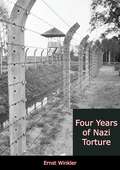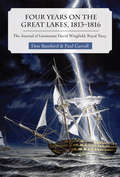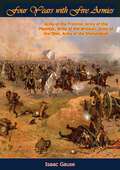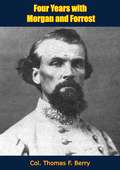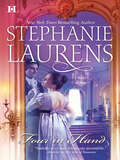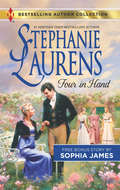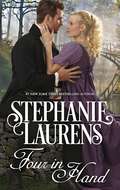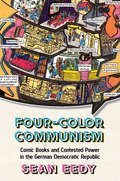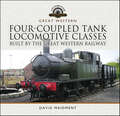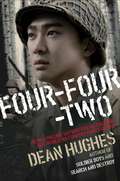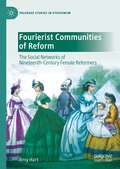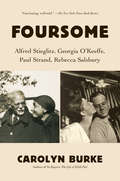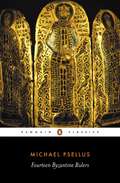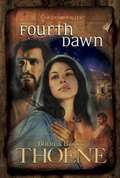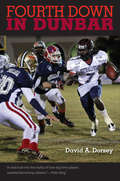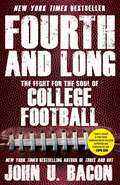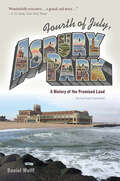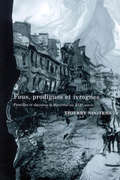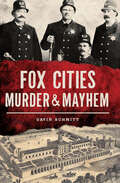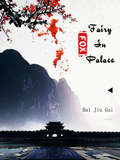- Table View
- List View
Four Years of Nazi Torture
by Ernst WinklerFour Years of Nazi Torture is a book written by a German Air Force pilot who refused to participate in Nazi atrocities during the second world war. He was rejected by his family, imprisoned and tortured for his beliefs. This is an autobiography of a man escaping horrifying circumstance and gaining refuge in America.
Four Years of Nazi Torture
by Ernst WinklerErnst Winkler, a soldier and pilot under the Weimar Republic, resigned when Hitler came into power and accepted a position as one of the leaders of the Catholic Youth Movement. In 1934, he was arrested by the Gestapo when he refused army service because, as a devout Catholic, he opposed the Nazis, and subjected to a series of concentration camps and all manner of physical brutalities.On his return to his family in 1938, Winkler found them divided, his brothers Nazified. He left home and became part of the underground movement, broadcasting from mobile Freedom stations. Eventually, he was forced to escape to Switzerland, then over to France, and from France into Spain; his wife followed, and they reached their final destination by steamer: the United States.Four Years of Nazi Torture, which was first published during World War II in 1942, is author Ernst Winkler’s gruelling personal account of punishment without crime under the Nazi regime.“A terrible story—simply told”—Kirkus Reviews
Four Years on the Great Lakes, 1813-1816: The Journey of Lieutenant David Wingfield, Royal Navy
by Paul Carroll Don BamfordDavid Wingfield joined the Royal Navy in 1806, at the age of fourteen. His service took him to the Great Lakes during the War of 1812. Captured, he was a POW in the United States for nine months. Following his release, Wingfield had some intriguing adventures on the Upper Great Lakes before returning to England. Once home, he used his handwritten notes, kept during his time in North America, as the basis for an account of his experiences there This unique account of the history of Canada during the events of the War of 1812 and the stories of the people and places he was exposed to during this time is being made available in book form for the first time. This is the only account of the War of 1812 as seen through the eyes of a young seaman. Included is a Wingfield genealogical description that spans the modern world.
Four Years with Five Armies: Army of the Frontier, Army of the Potomac, Army of the Missouri, Army of the Ohio, Army of the Shenandoah
by Isaac GauseIsaac Gause, served in Company E, 2nd Ohio Volunteer Cavalry Regiment, during the Civil War reaching the rank of sergeant. 2nd Ohio Volunteer Cavalry Regiment fought in the Knoxville Campaign, Battle of the Wilderness, Sheridan's Shenandoah Valley Campaign and finally the Appomattox Campaign. Gause served with distinction and went from a naïve teenage to a toughened NCO who would be awarded the Medal of Honor for capturing the colors of 8th South Carolina Infantry near Berryville.A vivid and exciting cavalry memoir from the Civil War.
Four Years with Morgan and Forrest [Illustrated Edition]
by Col. Thomas F. BerryIncludes Civil War Map and Illustrations Pack - 224 battle plans, campaign maps and detailed analyses of actions spanning the entire period of hostilities.First published in 1914, these are the recollections of Colonel Thomas Berry, taken from his diary kept during service in the Confederate Army when he served under Confederate General Nathan Bedford Forrest and General John Hunt Morgan during the Civil War.Berry’s narrative includes Morgan’s invasion into Indiana, Chickamauga, Rock Island prison, serving with General Joe Shelby in Mexico, escaping from the Yankees no less than thirteen times, and much more.A fascinating read.
Four in Hand (Regency #2)
by Stephanie LaurensShe was unquestionably a lady. Still, that had never stopped him before. He could see that she was not, he thought, that young. Even better. Another twinge of pain from behind his eyes lent a harshness to his voice. Who the devil are you? In no way discomposed, she answered, My name is Caroline Twinning. And if you really are the Duke of Twyford, then I'm very much afraid I'm your ward. . . . Max Rotherbridge couldn't believe it. Along with the dukedom of Twyford, he--London's most notorious rogue--had inherited wardship of four devilishly attractive sisters! Including the irresistible Caroline Twinning. The eldest Twinning was everything he had ever wanted in a woman, but even Max couldn't seduce his own ward. . . or could he? After all, he did have a substantial reputation to protect. And what better challenge than the one woman capable of stealing his heart?
Four in Hand: The Dissolute Duke
by Stephanie Laurens Sophia JamesWHEN THE FOX INHERITS THE HEN HOUSE... Infamous rogue Max Rotherbridge unexpectedly inherits a dukedom-and four lovely young wards along with it. Suddenly he has to protect the four ladies from other rakes like him. But it's the eldest sister, Caroline, who is giving him real trouble. Because she's the one he wants for his own... Caroline Twinning's beauty is matched only by her intelligence and shrewdness. She's determined to see her sisters-and herself-well married before the season is through. And no one is more inappropriate for her than the new duke. After all, the whole of London knows he's not the marrying kind. So why is he the only one who interests her? BONUS BOOK INCLUDED IN THIS VOLUME! The Dissolute Duke by Sophia James After circumstances force them to marry, Taylen Ellesmere, Duke of Alderworth, leaves his new wife and disappears. Three years later, he returns with an offer for Lucinda. But after all this time and pain, will she accept it?
Four in Hand: The Dissolute Duke (Mira Ser.)
by Stephanie LaurensBe enthralled again by this classic Regency romance, only from #1 New York Times bestselling author Stephanie Laurens.Infamous rogue Max Rotherbridge unexpectedly inherits a dukedom—and four lovely young wards along with it. Suddenly he has to protect the four ladies from other rakes like him. But it’s the eldest sister, Caroline, who is giving him real trouble. Because she’s the one he wants for his own… Caroline Twinning’s beauty is matched only by her intelligence and shrewdness. She’s determined to see her sisters—and herself—well married before the season is through. And no one is more inappropriate for her than the new duke. After all, the whole of London knows he’s not the marrying kind. So why is he the only one who interests her? Originally published in 1993
Four-Color Communism: Comic Books and Contested Power in the German Democratic Republic
by Sean EedyAs with all other forms of popular culture, comics in East Germany were tightly controlled by the state. Comics were employed as extensions of the regime’s educational system, delivering official ideology so as to develop the “socialist personality” of young people and generate enthusiasm for state socialism. The East German children who avidly read these comics, however, found their own meanings in and projected their own desires upon them. Four-Color Communism gives a lively account of East German comics from both perspectives, showing how the perceived freedoms they embodied created expectations that ultimately limited the regime’s efforts to bring readers into the fold.
Four-Color Communism: Comic Books and Contested Power in the German Democratic Republic
by Sean EedyAs with all other forms of popular culture, comics in East Germany were tightly controlled by the state. Comics were employed as extensions of the regime’s educational system, delivering official ideology so as to develop the “socialist personality” of young people and generate enthusiasm for state socialism. The East German children who avidly read these comics, however, found their own meanings in and projected their own desires upon them. Four-Color Communism gives a lively account of East German comics from both perspectives, showing how the perceived freedoms they embodied created expectations that ultimately limited the regime’s efforts to bring readers into the fold.
Four-Coupled Tank Locomotive Classes Built by the Great Western Railway (Locomotive Portfolios)
by David MaidmentThis book is a comprehensive history of all twenty-six classes of four coupled tank engines commissioned by the Great Western Railway or built at their Wolverhampton and Swindon Works, from the Broad Gauge 2-4-0 and 4-4-0 tanks of the 1840s and 1850s to the well known Collett 0-4-2 branch line engines of classes 48XX (later renumbered 14XX) and 58XX of the 1930s. As well as the Broad Gauge engines, the strange looking ‘Covertibles’ of William Dean, a number of experimental ‘one-off’ designs, the numerous Wolverhampton 0-4-2Ts of the ‘517’ class and the Swindon built ‘2-4-0 ‘Metro Tanks’ are described with – where known – their allocation and operation. The book includes twenty weight diagrams and nearly 300 photographs, over 50 in color. The four-coupled tank engines absorbed by the Great Western from other companies at or before 1923 will be featured in a separate volume to follow.
Four-Four-Two
by Dean HughesFrom the author of Soldier Boys and Search and Destroy comes a thought-provoking, action-packed page-turner based on the little-known history of the Japanese Americans who fought with the 442nd Regimental Combat Team during World War II. <P><P>Yuki Nakahara is an American. But it's the start of World War II, and America doesn't see it that way. Like many other Japanese Americans, Yuki and his family have been forced into an internment camp in the Utah desert. <P>But Yuki isn't willing to sit back and accept this injustice--it's his country too, and he's going to prove it by enlisting in the army to fight for the Allies. When Yuki and his friend Shig ship out, they aren't prepared for the experiences they'll encounter as members of the "Four-Four-Two," a segregated regiment made up entirely of Japanese-American soldiers. <P><P>Before Yuki returns home--if he returns home--he'll come face to face with persistent prejudices, grueling combat he never imagined, and friendships deeper than he knew possible.
Fourierist Communities of Reform: The Social Networks of Nineteenth-Century Female Reformers (Palgrave Studies in Utopianism)
by Amy HartThis book explores the intersections between nineteenth-century social reform movements in the United States. Delving into the little-known history of women who joined income-sharing communities during the 1840s, this book uses four community case studies to examine social activism within communal environments. In a period when women faced legal and social restrictions ranging from coverture to slavery, the emergence of residential communities designed by French utopian writer, Charles Fourier, introduced spaces where female leadership and social organization became possible. Communitarian women helped shape the ideological underpinnings of some of the United States’ most enduring and successful reform efforts, including the women’s rights movement, the abolition movement, and the creation of the Republican Party. Dr. Hart argues that these movements were intertwined, with activists influencing multiple organizations within unexpected settings.
Foursome: Alfred Stieglitz, Georgia O'Keeffe, Paul Strand, Rebecca Salsbury
by Carolyn BurkeA captivating, spirited account of the intense relationship among four artists whose strong personalities, passionate feelings, and aesthetic ideals drew them together, pulled them apart, and profoundly influenced the very shape of twentieth-century art.New York, 1921: Alfred Stieglitz, the most influential figure in early twentieth-century photography, celebrates the success of his latest exhibition--the centerpiece, a series of nude portraits of the young Georgia O'Keeffe, soon to be his wife. It is a turning point for O'Keeffe, poised to make her entrance into the art scene--and for Rebecca Salsbury, the fiancée of Stieglitz's protégé at the time, Paul Strand. When Strand introduces Salsbury to Stieglitz and O'Keeffe, it is the first moment of a bond between the two couples that will last more than a decade and reverberate throughout their lives. In the years that followed, O'Keeffe and Stieglitz became the preeminent couple in American modern art, spurring each other's creativity. Observing their relationship led Salsbury to encourage new artistic possibilities for Strand and to rethink her own potential as an artist. In fact, it was Salsbury, the least known of the four, who was the main thread that wove the two couples' lives together. Carolyn Burke mines the correspondence of the foursome to reveal how each inspired, provoked, and unsettled the others while pursuing seminal modes of artistic innovation. The result is a surprising, illuminating portrait of four extraordinary figures.
Fourteen Byzantine Rulers: The Chronographia of Michael Psellus
by Michael PsellusThis chronicle of the Byzantine Empire, beginning in 1025, shows a profound understanding of the power politics that characterized the empire and led to its decline.
Fourth Dawn (A. D. Chronicles #4)
by Bodie Thoene Brock ThoeneLeading up to the birth of Christ, Fourth Dawn tells the Christmas story like never before. This is Joseph and Mary's story—the human drama of a virgin teenage girl pregnant with the Son of God and her fiance who must deal with the reality that he is forced to care for the mother of God's child and eventually care for the child himself. Told through the eyes of those who witnessed these events, Fourth Dawn takes place at a time in history when the evil Herod ruled—a dangerous time for anyone to show interest in the Messiah's coming, much less give birth to the Messiah, or to be the Anointed One!
Fourth Down in Dunbar: Guns, Drugs, And Nfl Dreams
by David A. DorseyFor the young men of Dunbar—the low-income, historically segregated neighborhoods of Fort Myers, Florida—avoiding the path that leads to easy money as a drug dealer often means choosing complete devotion to football and dreams of NFL stardom. While such dreams remain out of reach for most, an astonishing number of Dunbar athletes, including NFL idols Deion Sanders, Jevon Kearse, and Earnest Graham, have achieved massive success.Fourth Down in Dunbar is the story of how one community, plagued by drugs and violence, where many children are fatherless, gave rise to so many stellar youth athletes. Using Sanders as the centerpiece of the story, David Dorsey explores Dunbar’s history to show how the same drug culture that ruined so many promising futures also served as motivation for football success. As a reporter for the Fort Myers News-Press, Dorsey had exclusive access to the players and their relatives. He shows the success of the wildly talented as well as the regrets of those who took the wrong path, while highlighting hope for the future of Dunbar.In this poignant tale of heartbreak and triumph, Dorsey reveals the true nature of these men who overcame the obstacles in their lives and made their families and their hometown proud.
Fourth and Long
by John U. BaconFor the millions of fans who celebrate the game-day heroics of the student athletes that give college football its heart and soul, bestselling author John U. Bacon's Fourth and Long, a warts-and-all look at the present and future of the game, gives them reason to still believe.In 2012-13, college football's possible futures were clearly on display as the Big Ten, the nation's oldest and most popular league, struggled through a season extraordinary for what it portends for the game. Granted unprecedented access to four programs--Penn State, Ohio State, Michigan, and Northwestern--Bacon saw up close how money, influence, and power haunt the league. And Bacon discovered that all four teams--buffeted by NCAA sanctions, scandal, fading rivalries, and the wide and narrow vision of coaches and athletic directors--are responding differently. He's also discovered something surprising. Expressed at tailgates in South Bend, the locker room in Happy Valley, the sidelines and bleachers of Ohio Stadium, among Michigan's marching band alums on homecoming weekend, and everywhere college football fans gather in their thousands, winning isn't everything. How a team wins matters, and that's measured in the guts and loyalty of the student athletes who, against incredible odds, fight for the traditions, passions, and ideals that have always defined what we most admire about college football.
Fourth of July, Asbury Park: A History of the Promised Land
by Daniel WolffBruce Springsteen brought international attention to the Jersey shore by naming his debut album Greetings from Asbury Park, NJ. But the real Asbury Park has an even more fascinating story behind it: a seaside city of dreams that became a magnet for both the best and worst of America, playing host to John Philip Sousa, Count Basie, and Dr. Martin Luther King, as well as the mob and the Ku Klux Klan. Fourth of July, Asbury Park tells the tale of the city’s first 150 years, guiding us through the development of its lavish amusement parks and bandstands, as well as the decay of its working-class neighborhoods and spread of its racially-segregated ghettos. Featuring exclusive interviews with Springsteen and other prominent Asbury Park residents, Daniel Wolff uncovers the history of how this Jersey shore resort town came to epitomize both the promises of the American dream and the tragic consequences when those promises are broken. Hailed by The New York Times as a “wonderfully evocative…grand, sad story” when first published in 2006, this revised and expanded edition considers how Asbury Park has changed in the twenty-first century, experiencing both gentrification and new forms of segregation.
Fous, Prodigues, Ivrognes
by Thierry NootensÀ travers l'analyse de près de 500 procédures d'interdiction engagées entre 1820 et 1895, Fous, prodigues et ivrognes examine les interactions entre les acteurs impliqués dans la régulation de la déviance : familles, système judiciaire, institutions asilaires et médecins. Tournant le dos à l'approche institutionnelle classique, Thierry Nootens considère la famille - et non l'État, la profession médicale ou l'asile - comme le lieu principal de définition et de régulation des diverses formes de déviance.
Fous, prodigues et ivrognes: Familles et déviance à Montréal au XIXe siècle (Studies on the History of Quebec/Études d'histoire du Québec #20)
by Thierry NootensÀ travers l’analyse de près de 500 procédures d’interdiction engagées entre 1820 et 1895, Fous, prodigues et ivrognes examine les interactions entre les acteurs impliqués dans la régulation de la déviance : familles, système judiciaire, institutions asilaires et médecins. Tournant le dos à l’approche institutionnelle classique, Thierry Nootens considère la famille – et non l’État, la profession médicale ou l’asile – comme le lieu principal de définition et de régulation des diverses formes de déviance.
Fox Cities Murder & Mayhem (Murder And Mayhem Ser.)
by Gavin SchmittWind through the criminal history of the cities along northeast Wisconsin&’s Fox River with the author of Milwaukee Mafia as your guide. The safe and sedate Fox Cities have seen their share of horrible crimes. Coldblooded murder, kidnapping, prostitution, organized crime and other misdeeds shocked and appalled not just the community but the entire state. Murderer Porter Ross tried to commit suicide by eating bedsprings. Wenzel Kabat mutilated and burned a man in order to take over his farm. The Appleton Butcher left dismembered human remains on a playground for children to find. In this volume, crime writer and leading expert on the Milwaukee Mafia Gavin Schmitt turns his magnifying glass on small-town America. Includes photos!
Fox Fairy In Palace: Volume 1 (Volume 1 #1)
by Bai JiuGuiIn order to repay the debt of gratitude he owed, the Thousand Year Fox Demon possessed the body of the Prime Minister's concubine, Jiang Qisha, who had died in injustice, to avenge her death. Fighting with his stepmother and bullying his direct sister, he could easily become the Crown Prince's concubine. The path to revenge was just around the corner. But what was going on with this man called Meng Hehui? Despite knowing her identity, she was still able to maintain a straight face and go against her at every turn!
Fox Fairy In Palace: Volume 2 (Volume 2 #2)
by Bai JiuGuiIn order to repay the debt of gratitude he owed, the Thousand Year Fox Demon possessed the body of the Prime Minister's concubine, Jiang Qisha, who had died in injustice, to avenge her death. Fighting with his stepmother and bullying his direct sister, he could easily become the Crown Prince's concubine. The path to revenge was just around the corner. But what was going on with this man called Meng Hehui? Despite knowing her identity, she was still able to maintain a straight face and go against her at every turn!
Fox Fairy In Palace: Volume 3 (Volume 3 #3)
by Bai JiuGuiIn order to repay the debt of gratitude he owed, the Thousand Year Fox Demon possessed the body of the Prime Minister's concubine, Jiang Qisha, who had died in injustice, to avenge her death. Fighting with his stepmother and bullying his direct sister, he could easily become the Crown Prince's concubine. The path to revenge was just around the corner. But what was going on with this man called Meng Hehui? Despite knowing her identity, she was still able to maintain a straight face and go against her at every turn!

